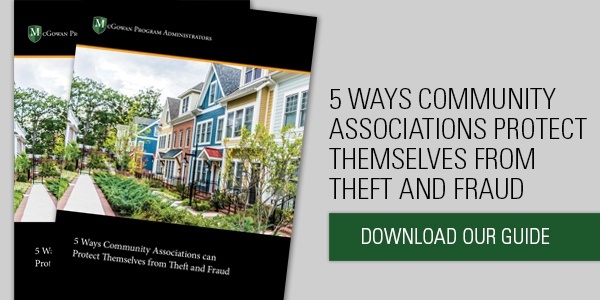It’s not what you say to get elected to the board of your community association. It’s what you do once you’re in charge.
Most HOA and community association leaders come in as rookies. They feel a sense of responsibility for their neighborhood and an urgency to defend property values. However, that’s not much preparation for the day-to-day challenges of supervising an HOA.
Succeeding as a community association leader depends on developing good habits. Here are five things successful HOA leaders do:
1. They get educated.
Community associations have specific obligations and responsibilities that most people do not encounter in their professional lives. A tax lawyer on the condo board may not know the relevant case law for HOAs in the state where she lives. The carpenter on the board who works in commercial construction might not experience seeking bids for parking lot resurfacing.
Thus, effective community leaders don’t assume they have all the insight they need to oversee a housing community. Fortunately, there’s an abundance of online-education materials to help HOA leaders learn what they need to know.
For instance, the Community Association Institute provides a wealth of tutorials and webinars to help leaders navigate tricky issues like solving disputes with residents and managing reserve funds. The more in-depth training requires a fee, but it’s minimal compared with the cost of leadership mistakes stemming from lack of knowledge. (Find a CAI chapter near you; association rules vary from state to state, so you’ll want resources specific to where you live.)
Another option is HOALeader.com, which provides discussion forums, a newsletter, and articles about key leadership and management issues. There’s a small monthly fee for access to the entire site.
As you’re getting up to speed on the fundamentals, take time to familiarize yourself with your association’s financials, reserve funds, operations, and governing documents. Also, take some time to review the minutes of recent board meetings.
2. They combine leadership with team building.
Some HOA problems require decisive executive action, while others demand community consensus. Successful HOA leadership depends on understanding the difference.
For instance, you have to act quickly to fix a major plumbing leak as soon as possible. Complaints about somebody’s junk car, however, might not be so urgent.
Trust and consensus form the bedrock of community association leadership. You build trust by treating every community member fairly. You build consensus by communicating the board’s agenda transparently and welcoming feedback.
Community associations are notorious for feuding and bickering among residents. Some neighbors just don’t like each other, and these animosities spill over into board meetings and dealings with property managers.
Strong leaders anticipate these issues and bend over backward in order to not take sides. Having a reputation for fairness makes it much easier to build a consensus around thorny challenges like assessments for building repairs and renovations.
3. They are financially transparent.
Dues must be received on time, maintenance employees must be paid, and reserve funds must be managed and monitored. A grudge between a board member and a neighbor might lead to allegations of financial wrongdoing. A treasurer with a gambling addiction could commit fraud or embezzle funds.
Financial transparency is crucial to handling all these challenges. It helps with resolving disputes, building trust, and forging consensus in a community.
Residents, board members, and professional managers all need accurate, timely updates on the HOA’s financial status. If residents start thinking the leadership isn’t being up-front about finances, the leaders start losing control. That can create a downward spiral that damages everybody in the community.
Newsletters and email updates should keep everybody apprised of the HOA’s financial health.
4. They encourage community involvement.
When you meet people in the hallway, at the pool, near the mailbox, or in the elevator, take a moment to encourage them to attend the next board meeting. At the meeting, set aside time to encourage feedback, answer questions, and ask residents what’s on their minds.
Plan events like potluck dinners, bingo nights, pool parties, and more to bring people together. Start an email newsletter and create a private Facebook group where people can talk things out and get to know each other.
The stewardship of sidewalks, buildings, playgrounds, and other community assets requires strong bonds between neighbors. Encouraging these connections reminds everybody of their common interest in protecting property values.
5. They manage risk with the right insurance.
Fraud or financial misdeeds could leave an HOA on the brink of bankruptcy. Inexperienced decision-makers can endure allegations of negligence and face the potential for costly damage awards.
Successful HOA leaders understand these and other risks in their communities. They make sure their insurance coverage includes:
- Crime: Policies should cover losses to embezzlement, theft of community assets, robberies, and other offenses.
- Directors and officers: Board members can be held responsible for a wide range of claims. This coverage provides reimbursement of legal fees and other expenses.
- Cyber liability and data breach: If a cybercriminal breaks into your system and uses data you store to commit identity theft, your HOA could be liable in a lawsuit.
No two HOAs have the same size, locale, property values, and risk profile. At McGowan Program Administrators, we help HOAs find the Umbrella or Package coverage best for their unique challenges. We also can expand your coverage with specific policies.



